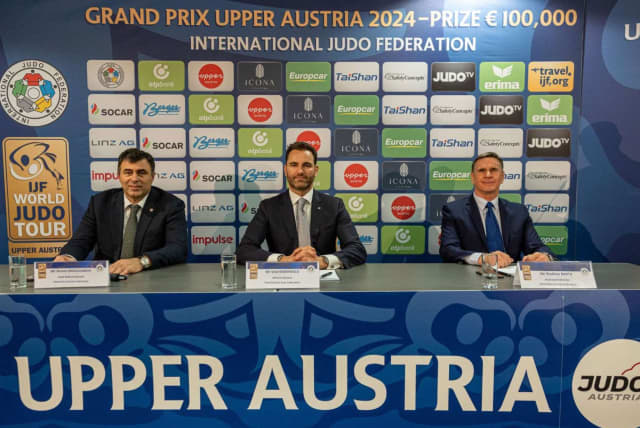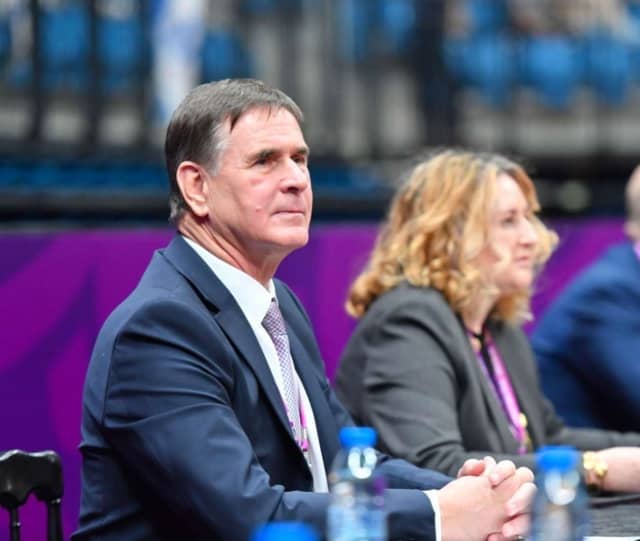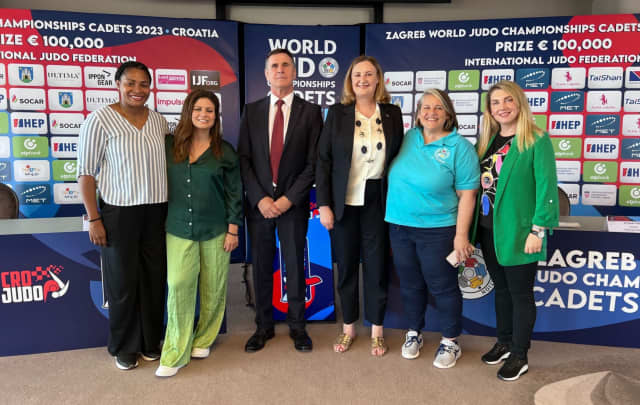As the lists of qualified judoka are about to be made public, it os normal for Mr Barta to take stock of a cycle that was shortened by one year after the Tokyo Games, although this had no impact on the two years of qualification that have just ended.
"When the Olympic qualification period comes to an end, we, everyone who is involved, are very curious about the outcome. Of course we have been following every step of the World Judo Tour closely and therefore we know what to expect, but every time it is like a new baby is born. Our new baby was born yesterday, on Sunday 23rd June 2024, when we closed the calculation process.
We know that everyone is now checking, because everyone wants to know who will be in Paris this summer. It is always interesting to compare from one Olympic Games to another, who did better this time. We will have time in the weeks leading to Paris 2024 to check all this. It is really exciting.
The fact is that as soon as we closed the process, we were already thinking about the next cycle. As soon as something is finished, something new begins. I can tell you that today is already different from yesterday.
Obviously we had a shorter Olympic cycle this time but the qualification period was exactly the same, two years. The point is that we can never relax, we have to stay focused on the goal, to deliver the perfect Games.
The difference this time was mainly due to the three year programme. Usually after the Games, national federations take a bit of time to prepare the next generation but this time they had to jump into the new cycle immediately. That's one of the reasons why we observed a lot of crossing between generations. Experienced athletes wanted to go one more time while new ones wanted to push now. That made these years very exciting and it was tough for the judoka and their federations.
I am super happy and proud to see that we will have 18 teams, plus the refugee team, during the mixed teams event. This is incredible. It is the result of the hard work of all the federations to make sure that they can have 6 athletes qualified. This is very encouraging.
It is actually great to see how the federations have become true specialists of the qualification process. To be honest, sometimes we see a delegation rejoicing because of a seventh place. We don't immediately understand why but then we realise that this seventh place makes a total difference and helps to qualify one more judoka. There are so many combinations and all federations know perfectly well how it works and what they have to do. I can say that all national federations have been very responsible throughout the qualification period.

All this wouldn't have been possible without the fuelling of the IJF. We can mention among others from the General Secretariat, Lisa Allan and Marine Stroobants, from the Presidential office, Larisa Kiss who is following the universality places, from the sport department, Leandra Freitas, and also Matthias Fischer and his IT team including Elisabetta Fratini, Corina Ilic and Huu-Hanh Pham. There are so many more people that could be associated with the success of this Olympic cycle. I want to thank all of them.
Today, I feel good and I am looking forward to the Paris 2024 Olympic Games, where we will see the results of all this."
Vladimir Barta is a happy head sport director. The job was well done. Based on the list, on 2nd July, all National Olympic Committees will have to deliver the names of the athletes who will compete in the French capital, including the host country, France. So we just have to wait a few more weeks for the show to begin and we can't wait for it.


